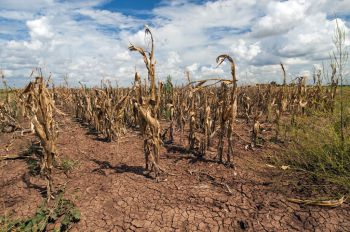University of Sussex research featured heavily in major climate change report
By: Neil Vowles
Last updated: Monday, 29 October 2018

University of Sussex academics have been heavily cited in the IPCC Special Report on the impacts of 1.5C global warming rise.
Research by the University of Sussex has played in key role in the creation of a hugely significant new report on climate change.
Work by a number of University of Sussex academics has been heavily cited in the Intergovernmental Panel on Climate Change (IPCC) Special Report on the impacts of 1.5C global warming which was published on Monday.
The report calls for far more extensive reductions in carbon emissions than currently planned, resulting in net zero emissions by 2050, to avoid global warming going beyond a catastrophic 1.5C rise above pre-industrial levels. The report advocates enormous changes in energy, transportation and land use to meet this goal.
The report refers to work by a number of researchers on energy transitions at the university’s Centre on Innovation and Energy Demand, both past and present, including research by Director Professor Benjamin Sovacool, co-Directors Professor Frank Geels, Professor Steven Sorrell and Dr Tim Schwanen, Dr Karoline Rogge, Dr Paula Kivimaa, Dr Kirsten Jenkins and Dr Florian Kern.
The report extensively employs socio-technical transitions and innovation studies literatures to highlight the importance of the way the co-evolution of technology and society can help accelerate transformative change.
The socio-technical approach helps understand the way innovations happen in the context of an existing system that may provide barriers and resistance.
CIED uses the socio-technical transitions approach to investigate the emergence, diffusion and impact of low energy innovations with Professor Frank Geels is a world leading scholar and key proponent of this approach.
The IPCC 1.5 °C report responds to the invitation to provide a special report on the impacts of 1.5°C global warming contained in the Decision of the 21st Conference of Parties of the United Nation Framework Convention on Climate Change to adopt the Paris Agreement.
Professor Sovacool and Professor Geels are also lead authors on the IPCC Sixth Assessment Report; both researchers are part of Working Group III looking at climate change mitigation.
The IPCC is the United Nations body for assessing the science related to climate change. It provides policy makers with regular scientific assessments concerning climate change, its implications and risks as well as to put forwards adaptation and mitigation strategies.
